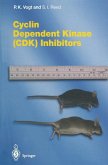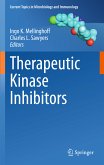Protein kinases are fascinating enzymes that maintain the proper function of nearly every task performed by the cells of the human body. By extracting a phosphate from the energy molecule ATP and linking it to another protein, protein kinases alter the structure and ultimate function of other proteins. In this way, protein kinases help monitor the extracellular environment and integrate signaling cues that, for the most part, are beneficial for human health and survival. However, protein kinases are often dysregulated and responsible for the initiation and progression of many types of cancers, inflammatory disorders, and other diseases. Thus, decades of research have revealed much about how protein kinases are regulated and approaches to inhibit these enzymes to treat disease. However, nearly 30 years since the identification of the first clinically beneficial small molecule protein kinase inhibitor, there are only a few examples where these drugs provide sustained and durable patientresponses. The goal of this book is to provide biomedical scientists, graduate, and professional degree students insight into different approaches using small molecules to block specific protein kinase functions that promote disease.
Dieser Download kann aus rechtlichen Gründen nur mit Rechnungsadresse in A, B, BG, CY, CZ, D, DK, EW, E, FIN, F, GR, HR, H, IRL, I, LT, L, LR, M, NL, PL, P, R, S, SLO, SK ausgeliefert werden.









